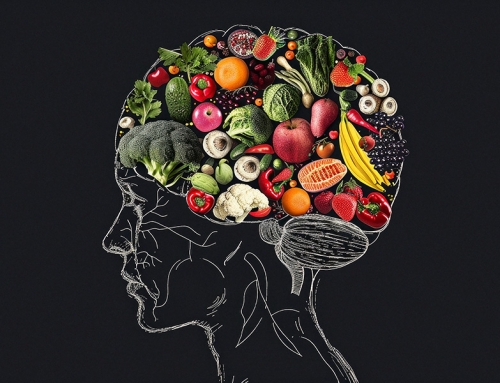Introduction
Cancer is a complicated disease that is caused by various interactions between genes and the environment, and it is one of the world’s leading causes of death. Malnutrition, sarcopenia, and cachexia are metabolic and nutritional changes that can affect cancer patients’ survival and recovery. Malnutrition in cancer patients is caused by an increase in inflammatory cytokines associated with the disease, metabolic changes, and the resulting insufficient availability of nutrients due to anorexia brought on by the disease and systemic treatments.
Focusing on nutrition during and after cancer treatment may be necessary to help the patient gain strength and survive the effects of the illness and its therapy. Cancer patients’ nutritional requirements differ from one another. It is crucial to determine the nutritional goals of patients and devise strategies to help achieve them. When being treated for cancer, eating healthy can assist patient –
- Feel better
- Maintain vigor and vitality.
- Maintain weight and nutrient stores in your body.
- Treatment-related side effects are better tolerated.
- Reduce chances of contracting an infection.
- Heal and recover more quickly.
Nutritional strategies that potentially allow better management of cancer
- Protein is required for growth, tissue repair, and the maintenance of a healthy immune system. If you don’t receive enough protein, your body may break down muscle to generate the energy it requires. It takes longer to recover from illness, and your resistance to infection may be lowered as a result. Cancer patients frequently require more protein than the average person. Extra protein is frequently required after surgery, chemotherapy, or radiation therapy to help mend tissues and fight infection. Fish, poultry, lean red meat, eggs, low-fat dairy products, nuts and nut butter, dried beans, peas, and lentils, and soy foods are all good sources of protein.
- Fats are essential for good nutrition. The body may get a lot of energy from fats and oils. Fats are broken down by the body and used to store energy, insulate body tissues, and transport some vitamins through the bloodstream.
- Choose monounsaturated (olive, canola, and peanut oils) and polyunsaturated fats (found mostly in safflower, sunflower, corn, and flaxseed oils and seafood) over saturated and trans fats when evaluating the impact of fats on your heart and cholesterol level.
- Carbohydrates are the body’s primary energy source. Carbohydrates provide the fuel that the body needs for physical activity as well as efficient organ function. The finest sources of carbs – fruits, vegetables, and whole grains – also provide the body’s cells with essential vitamins and minerals, fiber, and phytonutrients.
- Water and other liquids or fluids are necessary for good health. Water is required for the proper functioning of all body cells. You can become dehydrated (your body doesn’t have as much fluid as it should) if you don’t drink enough fluids or if you lose fluids through vomiting or diarrhea. The fluids and minerals that keep your body running can go dangerously out of balance if this happens. If you’re vomiting, have diarrhea, or aren’t eating much, you may need to drink more fluids. All liquids like soups, milk, etc contribute to your fluid intake.
- Antioxidants are chemicals that function as protective agents by inhibiting the oxidation process. They defend the body from free radicals (by-products of the body’s normal chemical reactions), which can cause damage. Healthy cells are attacked by free radicals, which cause their DNA to alter, allowing tumors to form.
- According to the National Cancer Institute (NCI), antioxidants like Vitamin C, Beta Carotene, Vitamin E, and Selenium may protect against cancers of the mouth, stomach, and esophagus, as well as cancers of the rectum, pancreas, and cervix. To acquire enough antioxidants in your diet, eat a variety of foods, including plenty of fruits and vegetables.
- Phytonutrients are naturally occurring substances found in plant-based foods. Phytonutrients such as lycopene, ellagic acid, and flavonoids can help to reduce inflammation. The antioxidant lycopene, which can be found in tomatoes and watermelon, has been linked to a reduced risk of prostate cancer. Ellagic acid can be found in a variety of fruits and vegetables, including strawberries, raspberries, and pomegranates. Flavonoids such as catechin, which is found in green tea, hesperidin, which is found in citrus fruits, and resveratrol, which can be found in grapes, reduce the risk of cancer.
Points to remember
- Have small frequent meals. Eat 6 meals in a day instead of 3 large meals.
- Eat fully cooked food.
- Do not eat or drink unpasteurized foods.
- Exercise lightly or walk before meals to increase appetite.
- Maintain optimum body weight.
References
- Kerschbaum E, Nüssler V. Cancer prevention with nutrition and lifestyle. Visceral medicine. 2019;35(4):204-9.
- Ravasco P. Nutrition in cancer patients. Journal of clinical medicine. 2019 Aug;8(8):1211.
- Papadimitriou N, Markozannes G, Kanellopoulou A, Critselis E, Alhardan S, Karafousia V, Kasimis JC, Katsaraki C, Papadopoulou A, Zografou M, Lopez DS. An umbrella review of the evidence associating diet and cancer risk at 11 anatomical sites. Nature communications. 2021 Jul 28;12(1):1-0.
- Nutrition Cancer Institute – //www.cancer.gov/about-cancer/treatment/side-effects/appetite-loss/nutrition-pdq
- American Society of Nutrition – //nutrition.org/the-importance-of-nutrition-in-cancer-prevention-treatment/
- Nutrition Recommendations During and After Treatment – //www.cancer.net/survivorship/healthy-living/nutrition-recommendations-during-and-after-treatment
Affiliation
- Graduate School of Public Health and Health Policy, City University of New York, New York, NY, United States
- Foundation of Healthcare technologies Society, New Delhi, India






Leave A Comment